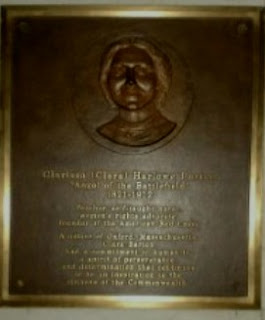50th Anniversary of President Johnson's Crime Commission Report
2017 marked the 50th anniversary of
the publication of “The Challenge of Crime in a Free Society.” This document was the final report of
President Lyndon B. Johnson’s Commission on Law Enforcement and Administration
of Justice. The Commission, which had a
total of 19 members, was established by the Johnson administration to examine
methods to improve the criminal justice system in the United States. At the time of the final report, Johnson
called the research “the most comprehensive and detailed program for meeting
the challenge of crime ever proposed in this country.”
The Johnson Crime Commission devised more than
200 recommendations in the 1967 report.
One of the recommendations was the establishment of calling 911 to
report an emergency. Another
recommendation from the Commission was for the U.S. Congress to create a new office
in the Department of Justice to assist state and local law enforcement agencies. This recommendation led to the establishment
of the Law Enforcement Assistance Administration – a federal agency that
provides resources to state and local law enforcement departments for various
programs. The Commission also challenged
Americans to do more to create a safer society.
Rather than only cooperating with police or accepting jury duty, the Commission
encouraged that citizens should respect the law, not cut corners, and reject
the statement that “anything goes as long as you don’t get caught.”
National Public Radio did a feature story for
the 50th anniversary of Johnson’s Crime Commission Report. In the article by NPR reporter Cheryl Corley,
Laurie Robinson was interviewed. “The
Johnson Crime Commission is really the most influential study of crime justice
that has ever been undertaken in the United States,” said Robinson, a former
co-chairperson of President Obama’s White House Task Force on 21st
century policing.
In recognition of the 50th anniversary of the Johnson Administration’s Crime Commission Report, I have proposed
these recommendations below to continue upon the important work of confronting
the challenges of crime within society:
* Improve information sharing among international,
federal, state, county, and local law enforcement agencies.
* Establish a national registry of fugitives of
justice who have open arrest warrants.
* Clear the nationwide backlog of untested rape
kits.
* Ensure that police departments can continue to
establish/improve partnerships with community members.
* Examine methods to confront the national opioid epidemic and re-examine drug conviction minimum sentencing guidelines.
* Examine methods to confront the national opioid epidemic and re-examine drug conviction minimum sentencing guidelines.
* Create a national inventory list of police
shootings involving civilians.
* Ensure that the criminal justice system
prevents (to the best extent possible) wrongful convictions.
* Investigate methods to deter potential mass
shootings.
* Improve funding for domestic/family violence
intervention/prevention efforts.
* Re-engage youth mentoring programs to confront
juvenile delinquency and gang prevention techniques.
* Re-evaluate methods to reduce the number of homicides.
* Continue to invest resources to confront white collar crime, internet scams, and romance scams.
* Continue to invest resources to confront white collar crime, internet scams, and romance scams.
* Evaluate the effects of mass incarceration on
the criminal justice system.
* Evaluate methods to reduce the rate of
criminal recidivism.
* Enhance partnerships with communities in order to investigate missing persons cases.
* Create a national registry of unsolved murders/cold cases based on year of incident and location.
* Enhance partnerships with communities in order to investigate missing persons cases.
* Create a national registry of unsolved murders/cold cases based on year of incident and location.
* Study the effectiveness of the death penalty
vs. life imprisonment for the most heinous crimes.
* Investigate methods to deter jail/prison
escapes.
* Improve effectiveness of electronic monitoring devices for parolee/supervised released programs.
* Improve effectiveness of electronic monitoring devices for parolee/supervised released programs.
* Hold prison officials accountable to reduce abuse
of prisoners and fraud within correctional facilities.
* Establish torture commissions to investigate civilian abuse claims against police departments.
* Continue to develop forensic science techniques to reduce mistakes regarding forensic evidence.
* Re-evaluate evidence collection methods, including the reduction of false eyewitness identifications.
* Maintain police department records management units; making sure that the most up to date technology is available for proper records organization.
* Re-evaluate the implementation of plea-deals in court cases; ensure that the process is fair and equitable.
* Establish torture commissions to investigate civilian abuse claims against police departments.
* Continue to develop forensic science techniques to reduce mistakes regarding forensic evidence.
* Re-evaluate evidence collection methods, including the reduction of false eyewitness identifications.
* Maintain police department records management units; making sure that the most up to date technology is available for proper records organization.
* Re-evaluate the implementation of plea-deals in court cases; ensure that the process is fair and equitable.
Source: “President Johnson’s Crime Commission Report,
50 Years Later” by Cheryl Corley. October 6, 2017. https://www.npr.org/2017/10/06/542487124/president-johnson-s-crime-commission-report-50-years-later


This is a timely article due to the ongoing crimes and related activities in the United States. Your recommendations complement those of the Johnson administration.
ReplyDeleteDear Sybil, thank you for your response pertaining to this essay about the Johnson administration Crime Commission Report. Please let me know if you have any additional recommendations to confront crime in society.
Delete-Steven Gilchrist